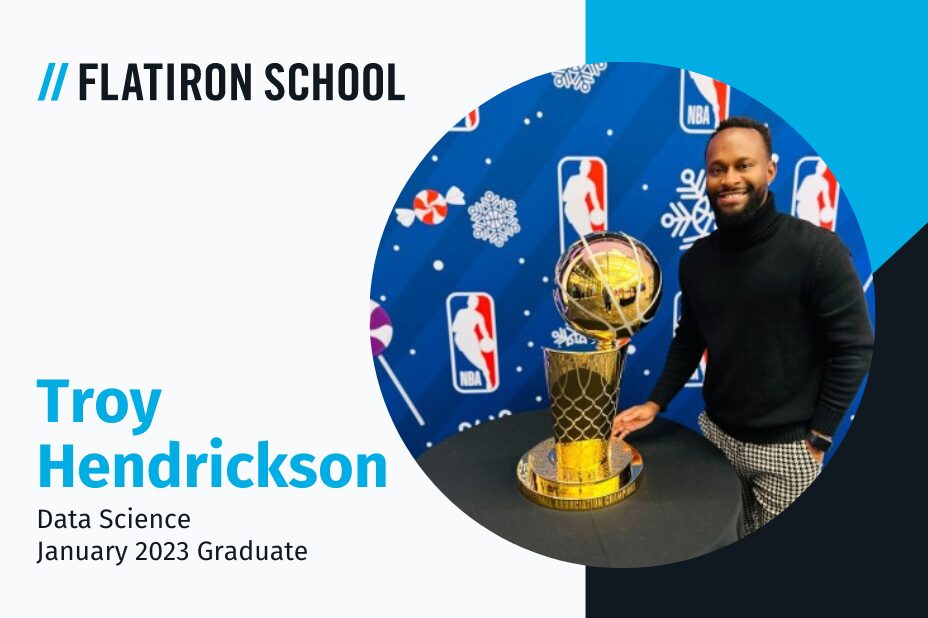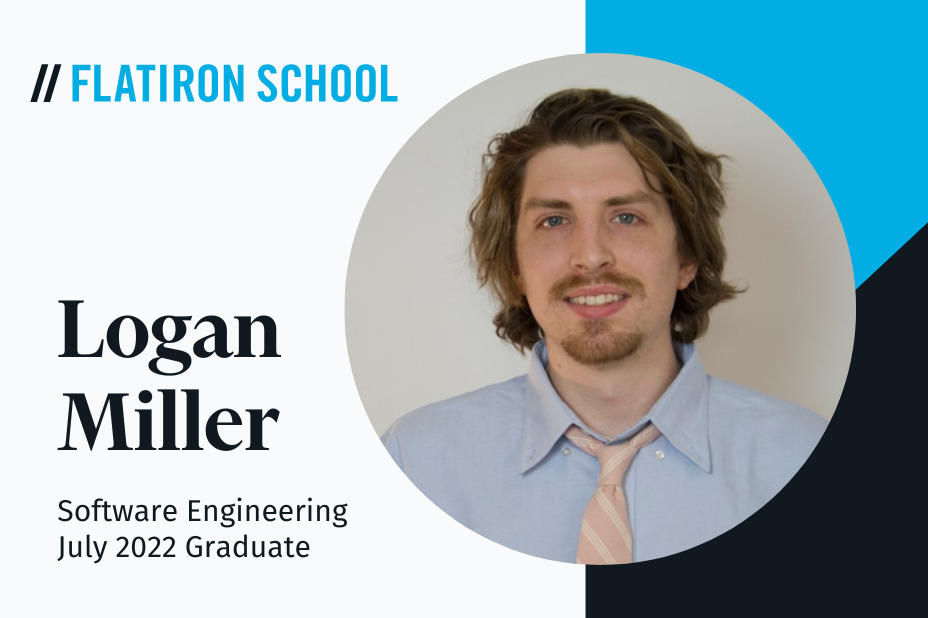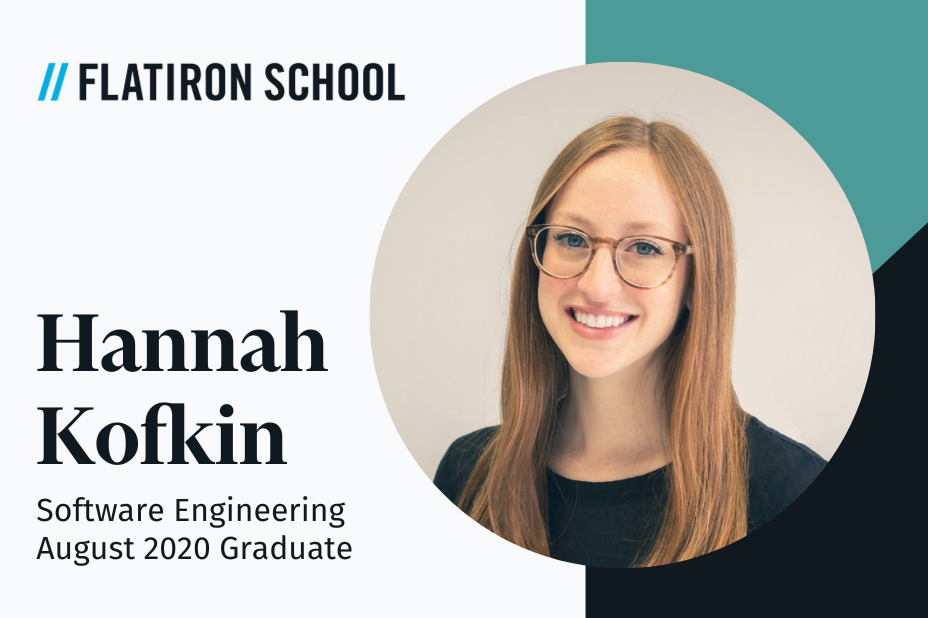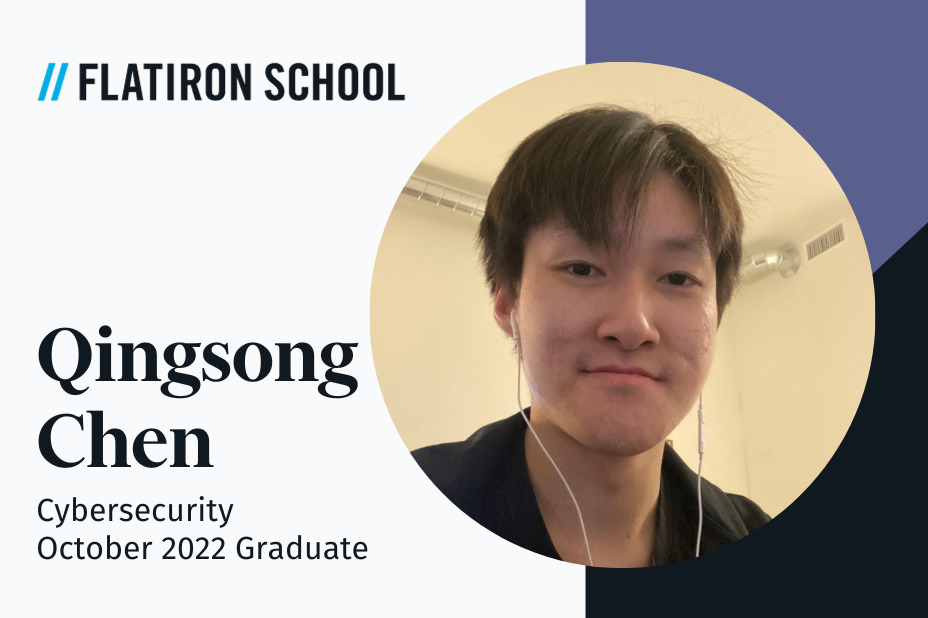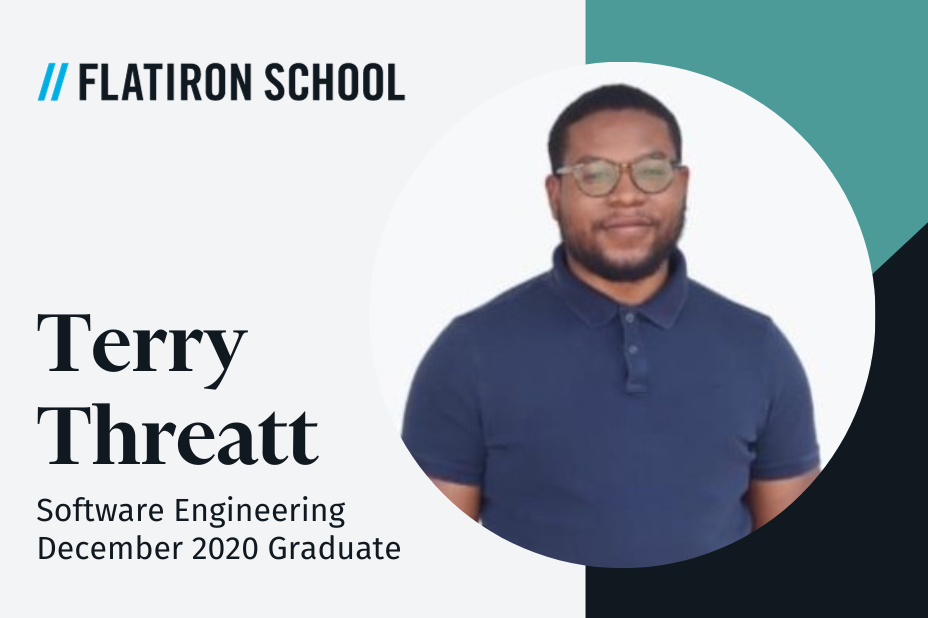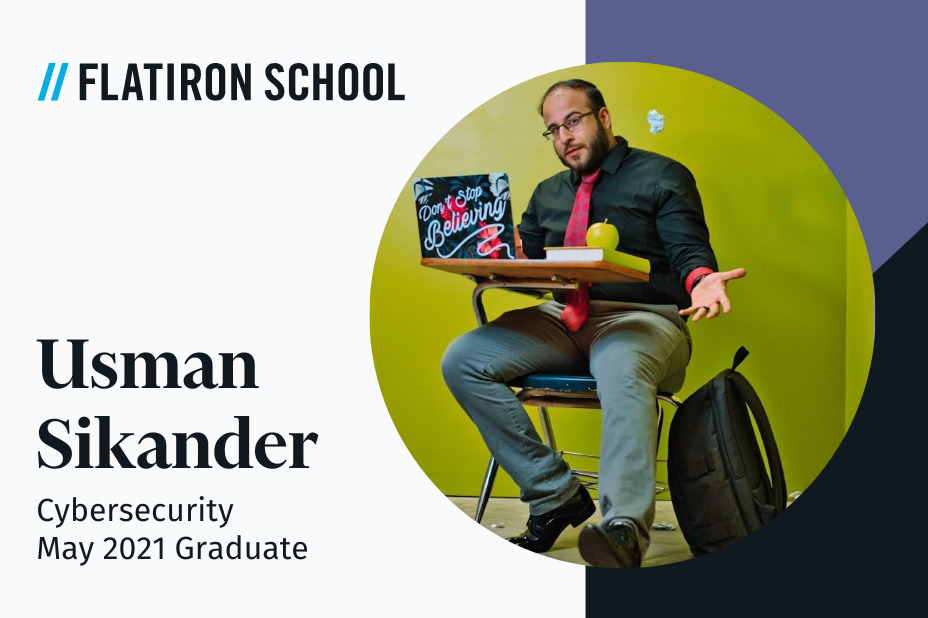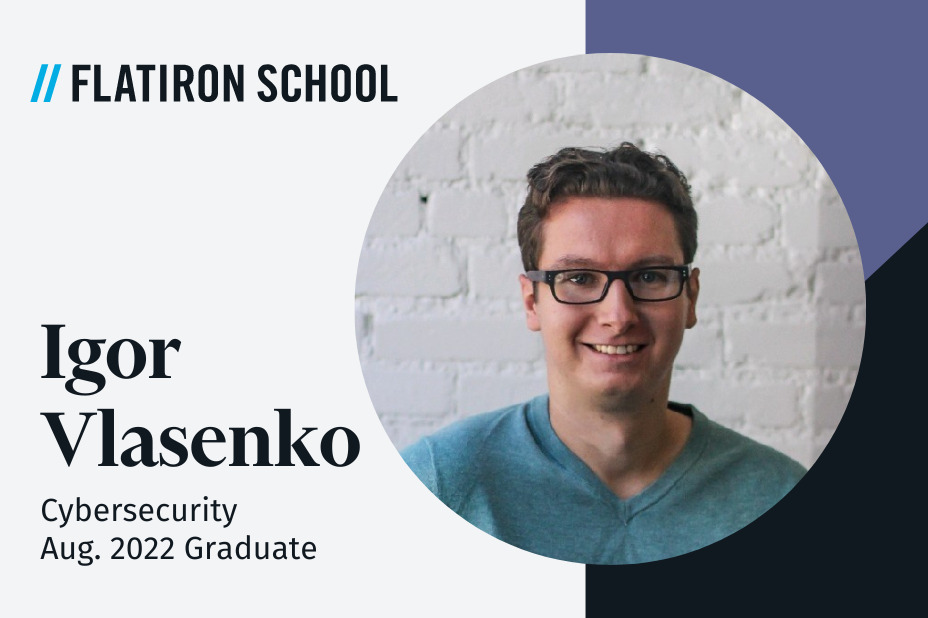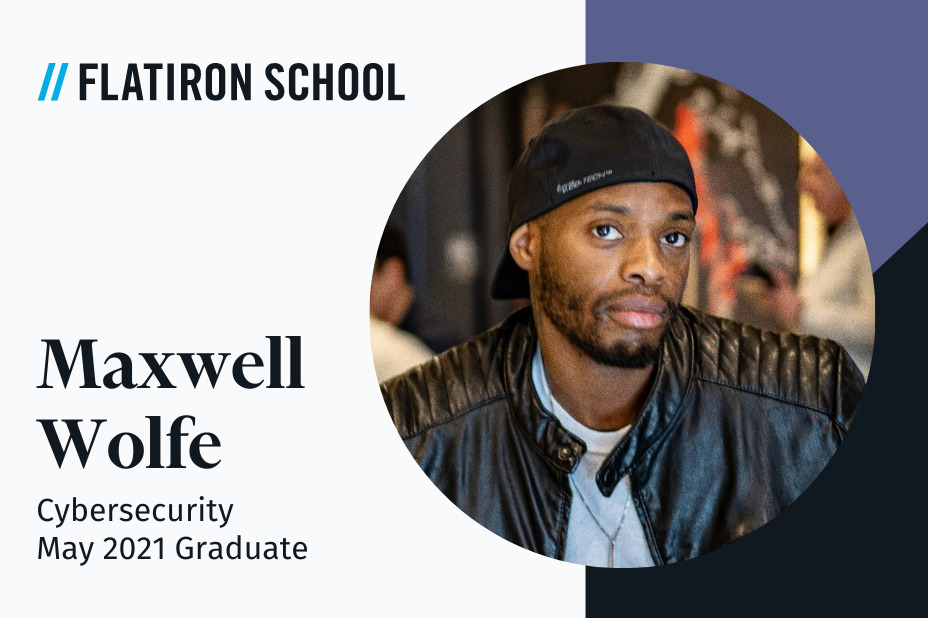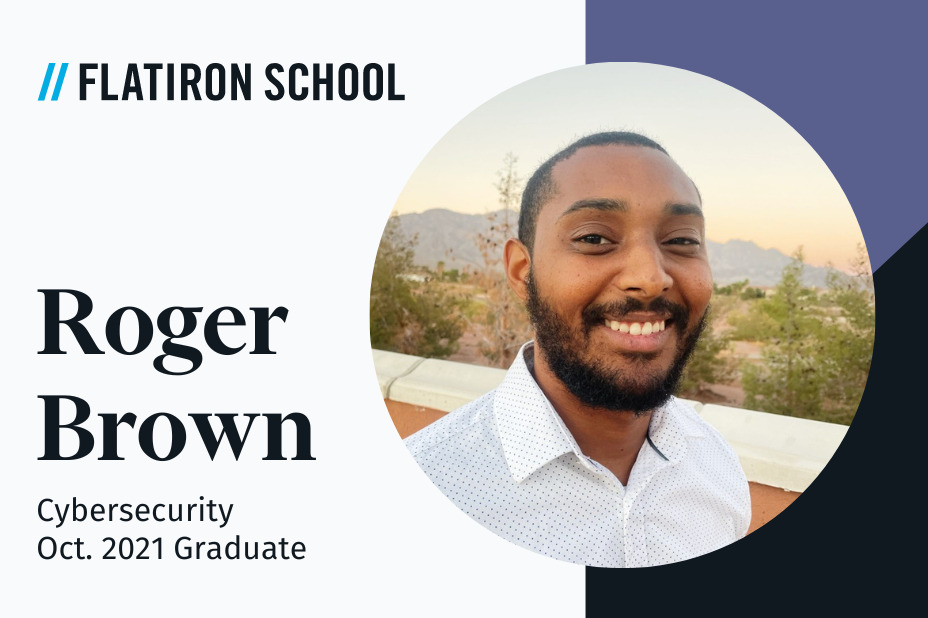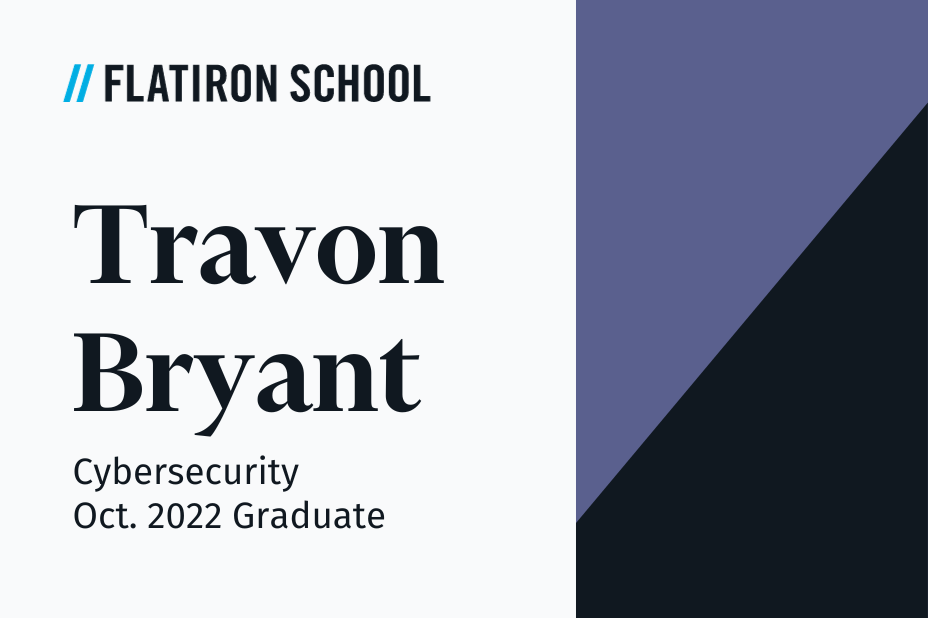Have you ever wondered what goes on behind the scenes while browsing the web? Think of a broken website you have come across. Or, one that had a button on a page that did not function. Or, one that was visually unappealing and poorly organized. If you have ever wondered what a web developer does, maintaining websites—and fixing broken items on a website—are just two of the core duties of a web developer’s job.
Responsibilities of a Web Developer
Here’s a more robust description of what web developers do: They use code to design, create, and maintain websites or web applications. Web developers guarantee users a smooth and friendly experience by continuously testing and debugging the functionality of the web application.
Often, web developers will work alongside web designers, who primarily focus on the visual aspect of the website—making sure things look pretty (for example, the layout) and making sure things check out from a usability standpoint. Web developers must be open to accepting constructive feedback on how the site can improve or be more visually appealing to the users.
In this article, we will answer the question “What does a web developer do?” by providing an overview of the key responsibilities of the role. We will look at the three primary types of web developer roles and the tech skills those roles require. We’ll close the article by looking at career opportunities (and average salaries) for web developer professionals.
The Three Types of Web Developers
There are three primary types of web developers: front-end developers, back-end developers, and full-stack developers. Let’s take a closer look at each role, plus the technical skills for web development that each role requires.
Back-end developers
Back-end developers create and maintain the server-side logic that powers the web application that allows the front end (what a user sees on a screen) and back end (the behind-the-scenes inner workings) to communicate with each other.
An example of this would be Spotify, the music streaming service that allows users to create accounts and playlists they can manage. It’s the back-end developers who use the Spotify Application Programming Interface (API) to power these features. Developers will handle tasks like authenticating users accounts, storing the users preferences in a database, and interacting with Spotify’s servers to stream a user’s song requests.
Additional responsibilities of a back-end developer include managing servers, databases, and applications, and guaranteeing secure authentication and authorization. They also integrate APIs and document the functionality of the code.
Depending on the size of the web development team, back-end developers will collaborate on different versions of the application using GitHub. Below are profiles of common programming languages, frameworks, and databases that many back-end developers use today.
Back-end development programming languages
Developers use back-end programming languages to power the internal functionality of web applications. They handle operations that are invisible to the users. These include, for example, managing databases, handling requests from the servers, and interacting with APIs to deliver data and features that users will use and see on the website.
Some popular back-end programming languages include:
- Python is an easy-to-learn-and-use object-oriented programming language. It is commonly used in building software applications, as well as for automating tasks and analyzing data. Netflix, Spotify, and many other big-name companies use Python.
- NodeJS allows developers to build server-side applications using JavaScript.
- Ruby is a programming language used to build web applications.
- PHP is a scripting language commonly used to create server-side logic for dynamic web pages.
- Java is another programming language commonly used in building web and mobile applications.
Back-end development frameworks
To enhance security and efficiency, back-end developers will often use back-end development frameworks. These are pre built tools that provide a foundation for developers to construct the server-side functionality of the website. They include pre-built functions and libraries that help speed up development tasks like user authentication, database integration, and API development.
Some common back-end development frameworks include:
- Flask is a Python framework commonly used to build web applications. It is known for its simplicity and flexibility, which allows users to build small or large applications. Netflix uses Flask for parts of its back-end application.
- Ruby on Rails is a web development tool that adds server-side logic to a back end. It is built on the Ruby programming language, and has helped startups build web applications quickly. Rails is known for its
DRY (Don’t Repeat Yourself)concept, which allows developers to reuse and organize code efficiently. - Django is a back-end framework primarily used with Python. It allows developers to build web applications quickly and efficiently.
- Spring Boot is a framework primarily used to develop web applications and microservices (which are large applications being separated into smaller applications, each having its own responsibilities). Spring Boot is built on top of the Java programming language.
Back-end development databases
A database stores, manages, and retrieves crucial information that is useful to the users or web application. This can include user information, transaction history, and more. Back-end databases can handle retrieving the data or creating new instances in the database. This helps ensure data integrity, security, and scalability.
Common databases include:
- PostgreSQL is a relational database management system. It helps developers build reliable applications and protects user data. It can be scalable, storing any size of data no matter how large or small. Instagram, Uber, and many other companies use PostgreSQL.
- SQLite is a lightweight relational database. It is a great choice for developers who need a simple relational database. It is common for embedded systems like TVs or mobile devices to use SQLite.
- MongoDB is a non-relational database that allows developers to store structured or unstructured data.
Front-end developers
Front-end developers are responsible for designing and coding the visual aspects of the web application. This includes what users will see and how they will navigate to different pages, plus the graphical design of the application. Front-end developers also implement responsive design, which ensures the application looks appealing and is functional on both desktop and mobile devices. Front-end developers will often collaborate across teams and manage different versions of the application using GitHub.
Below are brief profiles of common programming languages and tools that many front-end developers use today.
Front-end developer programming languages
- Hypertext Markup Language (HTML) is the primary language for building web applications.
- Cascading Style Sheets (CSS) is a programming language used for structuring and styling the layout of a web page (for example, the font size of letters on the page).
- JavaScript is a programming language used to create dynamic web applications. It is commonly used with HTML and CSS.
Front-end developer tools
- React is a JavaScript library known for creating dynamic user interfaces for web applications.
- Angular is a JavaScript framework written in Typescript. It allows users to develop web applications; primarily single page applications.
- Vue is a popular JavaScript framework used to develop web applications. It is known for its ease of use and flexibility.
Full-stack developers
Full-stack developers create and maintain both the front end and back end of a web application. They need skills in both front-end and back-end programming languages and frameworks, plus version control management, server communication, and deployment applications. Full-stack developers need to be proficient in various programming languages and frameworks.
A full-stack development stack may include:
- HTML
- CSS
- JavaScript
- React
- Python
- Flask
- PostgreSQL
Career Opportunities for Web Developers
The U.S. Bureau of Labor Statistics projects a 25% national growth in software engineering roles through the year 2031. So the future looks bright for those in the field. According to ZipRecruiter, the yearly average salary for a web developer in the United States is $93,848. Depending on the role, industry, and experience you have when you enter the field, the average salary may vary.
Let’s take a look at the average salaries for the three developer roles we’ve profiled in this article.
Back-end web developer
According to ZipRecruiter, the average salary for a back-end developer in the United States is about $120,000 per year (May 2024). There are a few jobs related to the back-end web developer job category that have even higher average pay. Those jobs include senior Java software engineer, back-end infrastructure engineer, back-end architect, and senior back-end developer.
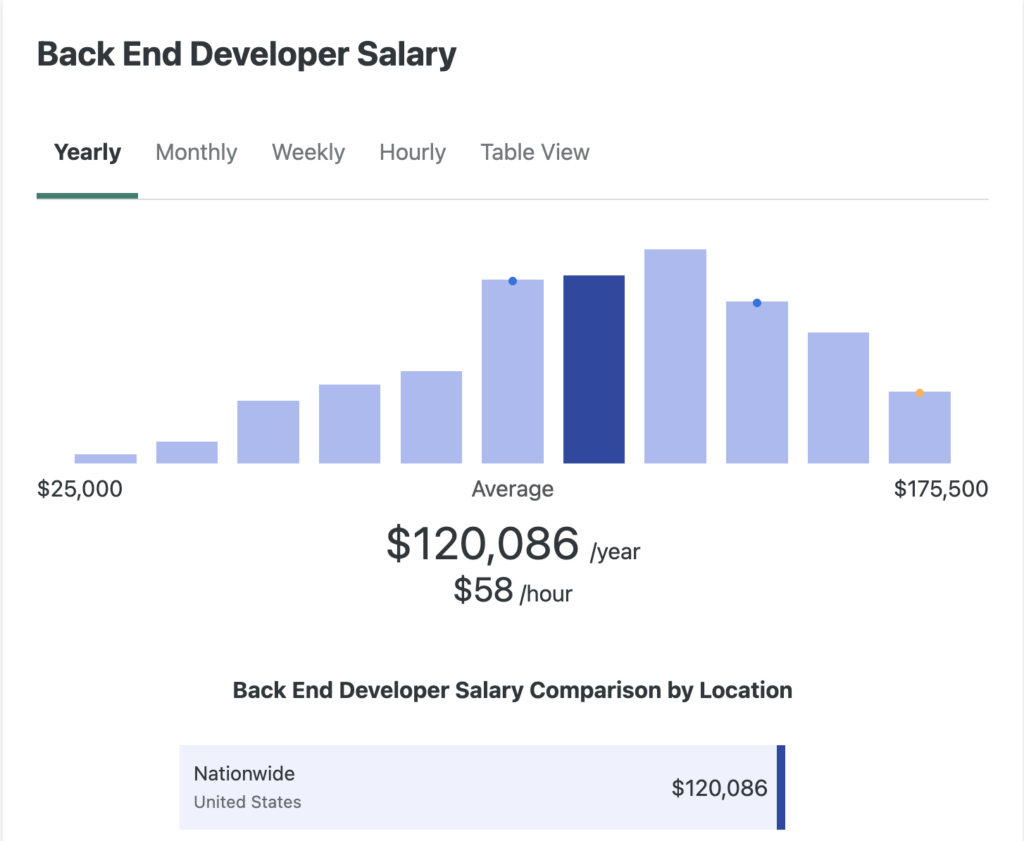
Front-end web developer
According to ZipRecruiter, the average salary for a front-end developer in the United States is about $110,000 per year (May 2024). There are a few jobs related to the front-end web developer job category that have even higher average pay. Those jobs include front-end architect, front-end engineer, and senior front-end engineer.
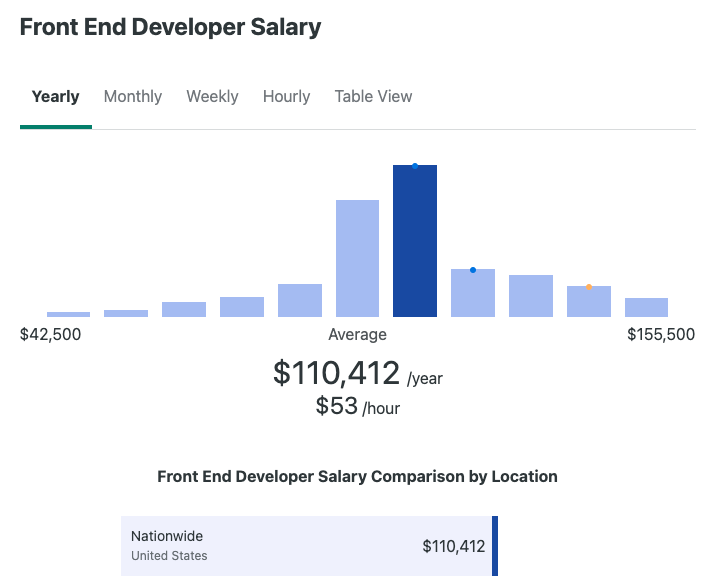
Full-stack web developer
The average salary for a full-stack developer in the United States is about $118,000 per year. There are a few jobs related to the full-stack developer job category that have even higher average pay. Those jobs include full-stack technical lead, stack developer, and Python web developer.
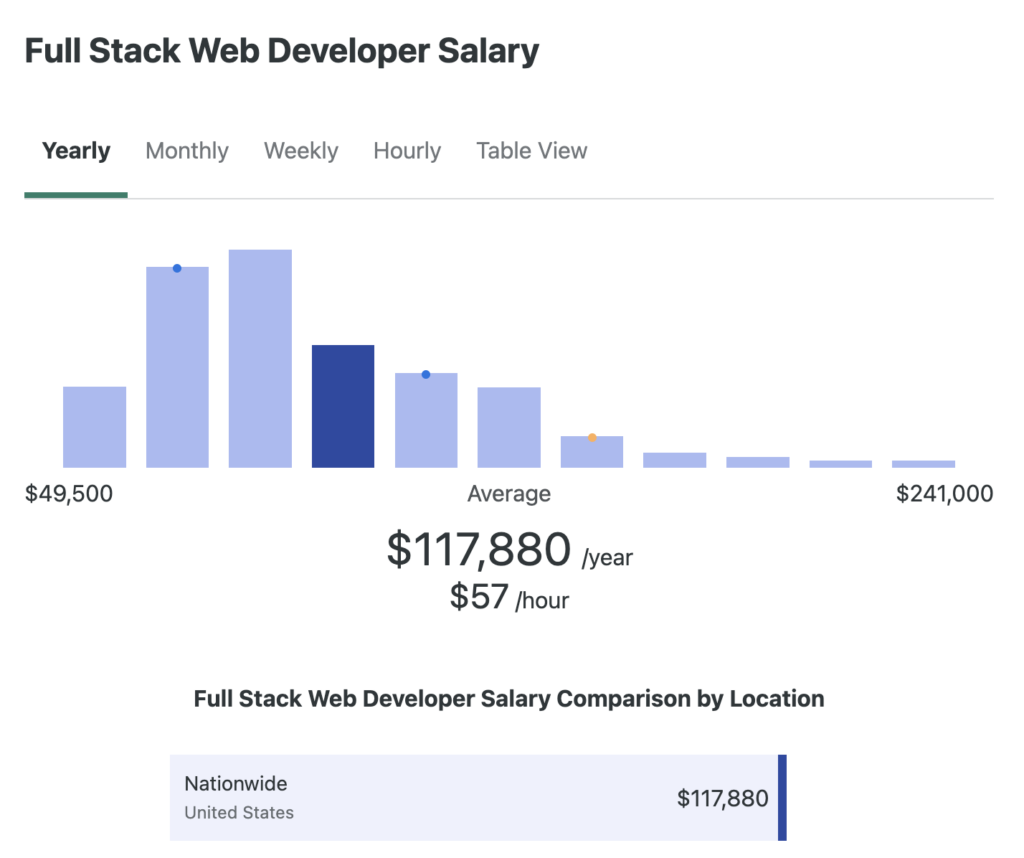
How to Become a Web Developer
The world of web development offers exciting paths, each with its own set of languages and tools to master. Whether the visual appeal of front-end development, the intricate logic of back-end development, or the well-rounded mastery of full-stack development appeals to you, the first step is building a strong foundation. You’ll need to dive into the core languages that power the web. Front-end developers will conquer the trifecta of HTML, CSS, and JavaScript. Back-end developers will delve into languages like Python and frameworks like Flask. Full-stack developers? You’ll need to absorb it all.
Flatiron’s Software Engineering Bootcamp can equip you with the skills and knowledge needed to thrive in web development. We’ve helped students from a diverse array of backgrounds—including events management and medicine—successfully change career paths. Take the first step toward a new career today and book a 10-minute call with our Admissions team to learn more.





